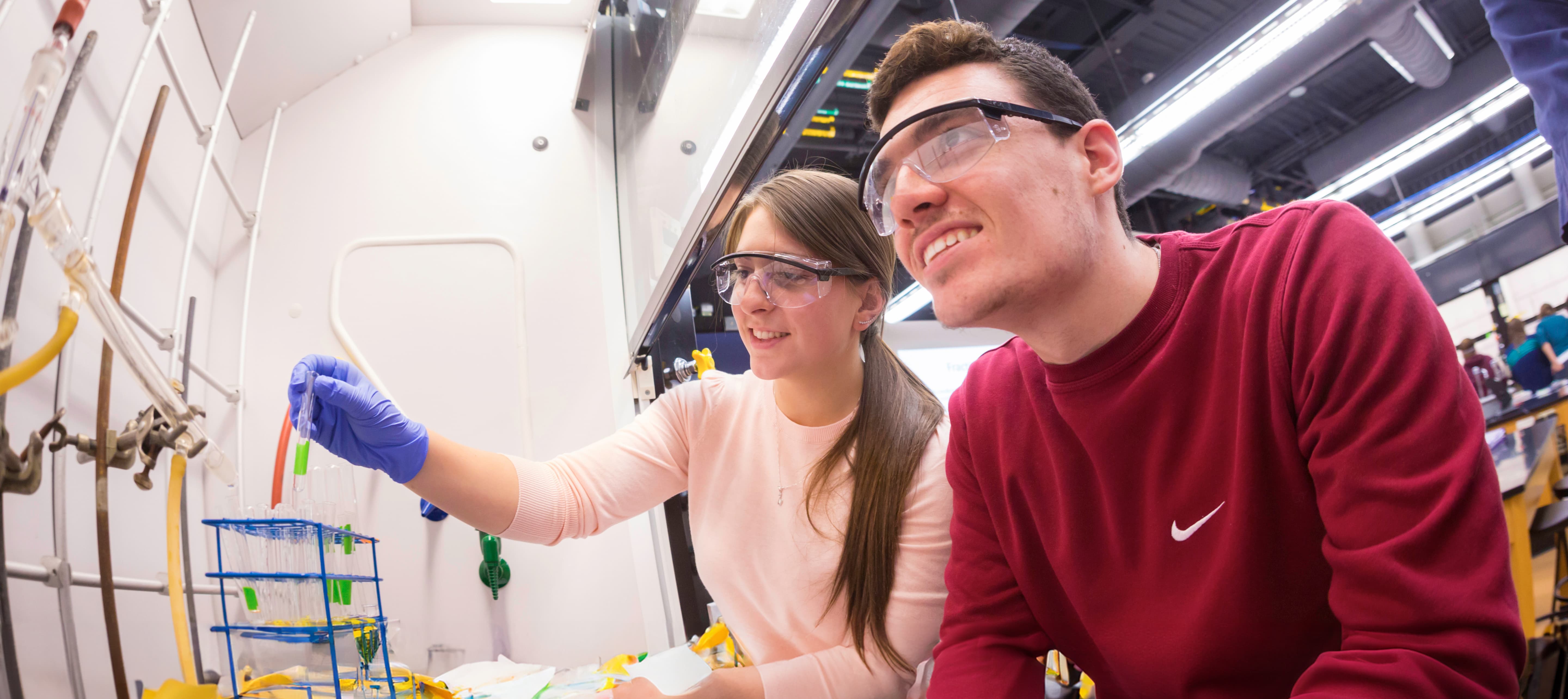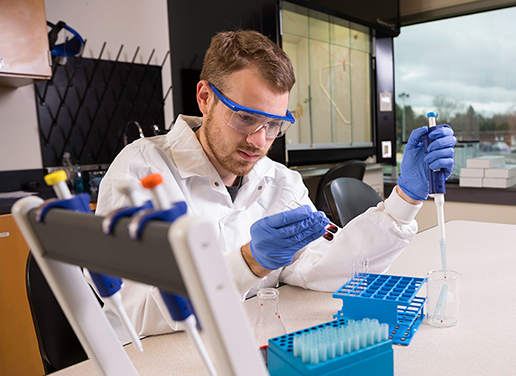Unlocking the Elements
The Chemistry major enables creative individuals to apply their analytical, mathematical, and communication skills to the investigation of the world from the subatomic to the cellular level. Our rigorous and engaging Chemistry curriculum focuses on connecting theoretical principles to laboratory practice. You’ll enjoy learning and working in the classrooms and laboratories of our Center for the Sciences and Pharmacy, a $40 million facility that provides students with the opportunity to utilize sophisticated state-of-the-art technology and instrumentation such as nuclear magnetic resonance and gas-chromatography mass spectrometry.
Why Choose Chemistry?
From nutrition, new drugs, and human health; to coatings, paints, and plastics; to powering our phones, cars, and homes, chemistry impacts everything in our world. Chemists integrate science and technology to facilitate the design, synthesis, and analysis of pharmaceuticals, cosmetics, polymers, pesticides, colorants, chemical sensors, and test reagents (to name a few). They conduct cutting-edge research for major universities and chemical industries; they educate students; and they serve the public by working for the government and other entrepreneurial institutions. Additionally, a bachelor’s degree in chemistry is excellent preparation for students interested in pursuing graduate studies in the sciences or a career in medicine, healthcare, or veterinary science.





